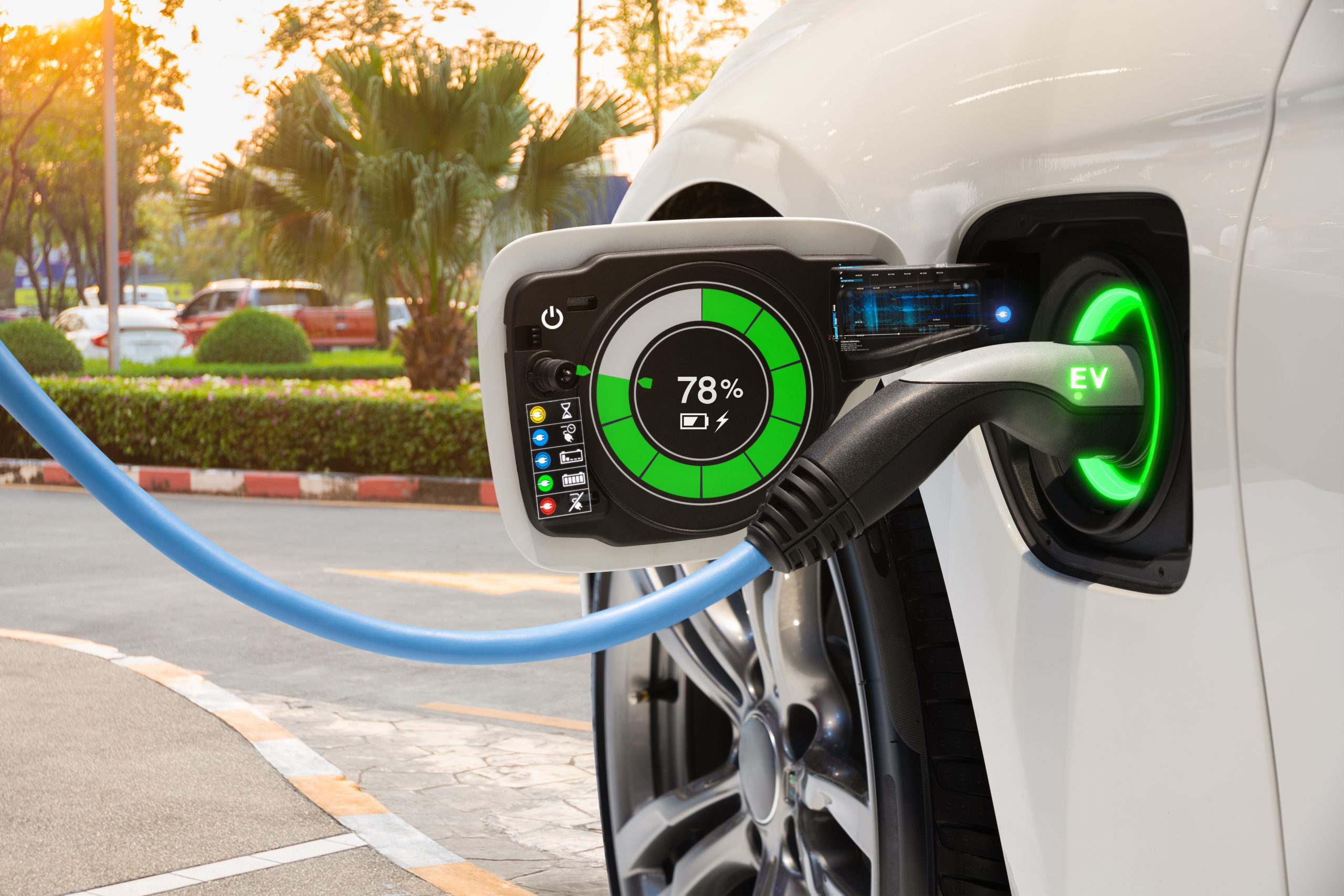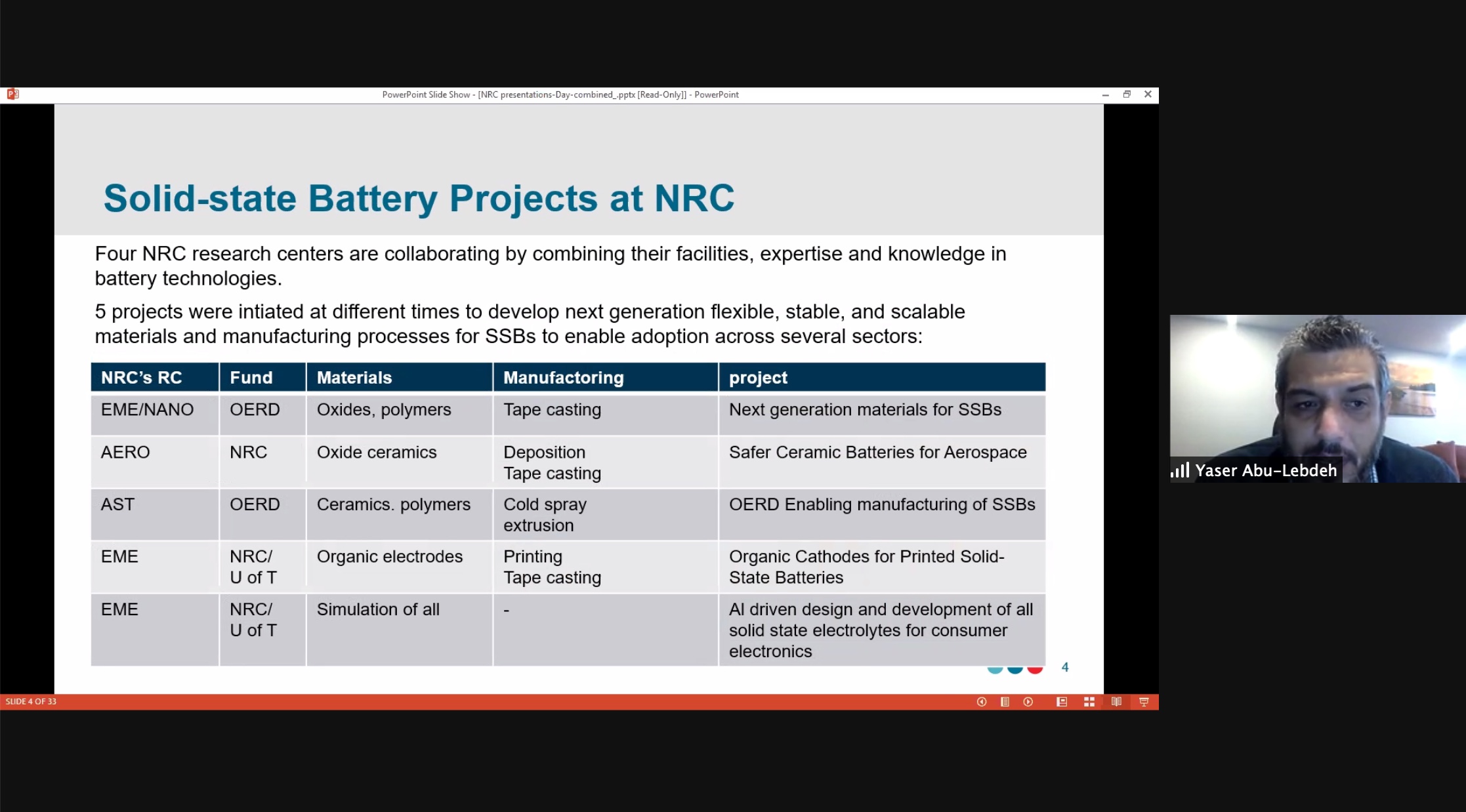The First Ever UK-Canada Solid-State Batteries Summit

The inaugural UK-Canada Summit on Solid-State Batteries took place this week (22-24 February 2021) with the aim of building on a strong history of bilateral collaboration between the UK and Canada on battery and energy storage technologies.

The event was hosted and organised by the National Research Council of Canada (NRC), The Faraday Institution, The British High Commission in Canada, and KTN Global Alliance, and driven by joint world-class research and innovation capabilities, as well as shared commitment and ambition to achieve the Net Zero targets and Global collaboration.
Topics of focus at the Summit included updates from cutting-edge solid-state battery research, routes to scale-up and commercialisation, and the need for long-term support in the space. Speakers included Government officials, world-leading researchers, industry stakeholders and Research Councils both from the UK and Canada. The Summit concluded with an interactive workshop aiming to develop a joint work plan / road-map for bilateral collaboration.
The main aspect across the three days was the huge potential for solid-state batteries in delivering increased energy and power density and better safety aspects by comparison to lithium-ion and other battery technologies, as well as the recognition that further research is required in order to further commercialise the technology and bring the costs down. It was highlighted that a strong collaboration between the UK and Canada could cross-fertilise ideas, help to build international supply chains and bring results faster.
The Summit was driven by the partnership between:
-
- NRC’s Next Generation Materials for Solid State Batteries Project consortium
(led by Dr. Yaser Abu-Lebdeh, National Research Council of Canada – NRC) - Faraday Institution’s SOLBAT research consortium
(led by Prof. Peter Bruce and Prof. Mauro Pasta, University of Oxford)
- NRC’s Next Generation Materials for Solid State Batteries Project consortium
The event was opened by Susan le Jeune d’Allegeershecque, British High Commissioner to Canada, and Arthur Kong, Head of Science, Innovation and Policy at the Foreign, Commonwealth and Development Office (FCDO) who gave an insightful introduction and overview to the UK and Canada Solid-State Landscape. Susan commented:
“I am thrilled to see leading UK and Canadian researchers and companies come together to discuss how to push the boundaries of battery technologies. In the lead-up to the COP26 conference in Glasgow, the UK-Canada Summit for Solid-State Batteries is a shining example of how two countries can work closer together to help us accelerate towards electrification and achieve ambitious GHG emission reduction targets.”
Susan le Jeune d’Allegeershecque, British High Commissioner to Canada
Prof. Mauro Pasta, University of Oxford highlights the collaborative effort and support from expert researchers.

Dr. Yaser Abu-Lebdeh, National Research Council of Canada introduced NRC Next-Generation Materials for Solid-State Batteries Project.

Key stakeholders added:
“The UK-Canada Summit on solid-state batteries was a success beyond my expectations. It was exciting to see UK and Canadian researchers and companies coming together and lay the foundations for a fruitful collaboration to accelerate the development of solid-state battery technology.”
Prof. Mauro Pasta, University of Oxford and The Faraday Institution
“The summit provided an excellent forum to meet with researchers, industry and government representatives, and to catch-up on the latest research efforts addressing key challenges in solid-state batteries. I have no doubt the insights generated and connections made will contribute to fulfilling our company’s mission.”
Maciej Jastrzebski, CEO, Li-Metal
The Organising Committee thank everyone involved in such a successful first Summit.
If you would like more information on the UK batteries landscape, click here and sign up to the mailing list for the Cross-Sector Battery Systems Innovation Network.
Further Information
Solid-State Battery Transformational Potential
Solid-state batteries are unique from other batteries by their lack of a liquid electrolyte. They can revolutionise energy storage by overcoming hurdles faced by traditional lithium-ion technologies and provide various sectors, like electric vehicles and grid modernisation, with higher energy density, lighter, more affordable, and safer solutions. Both the UK and Canada have made significant investments in battery-technology research and scale-up. There is an opportunity to leverage assets and capabilities in both countries and ensure greater resources to collectively advance scientific knowledge, commercial viability, and accelerated deployment of next-generation technologies, such as solid-state batteries.
Related Content
Related Events and Recordings
Tue
2
Mar
2021
Accelerating to Net Zero with Hydrogen Blending Standards Development in the UK, Canada and the US
16.30 - 18.15 | Online


